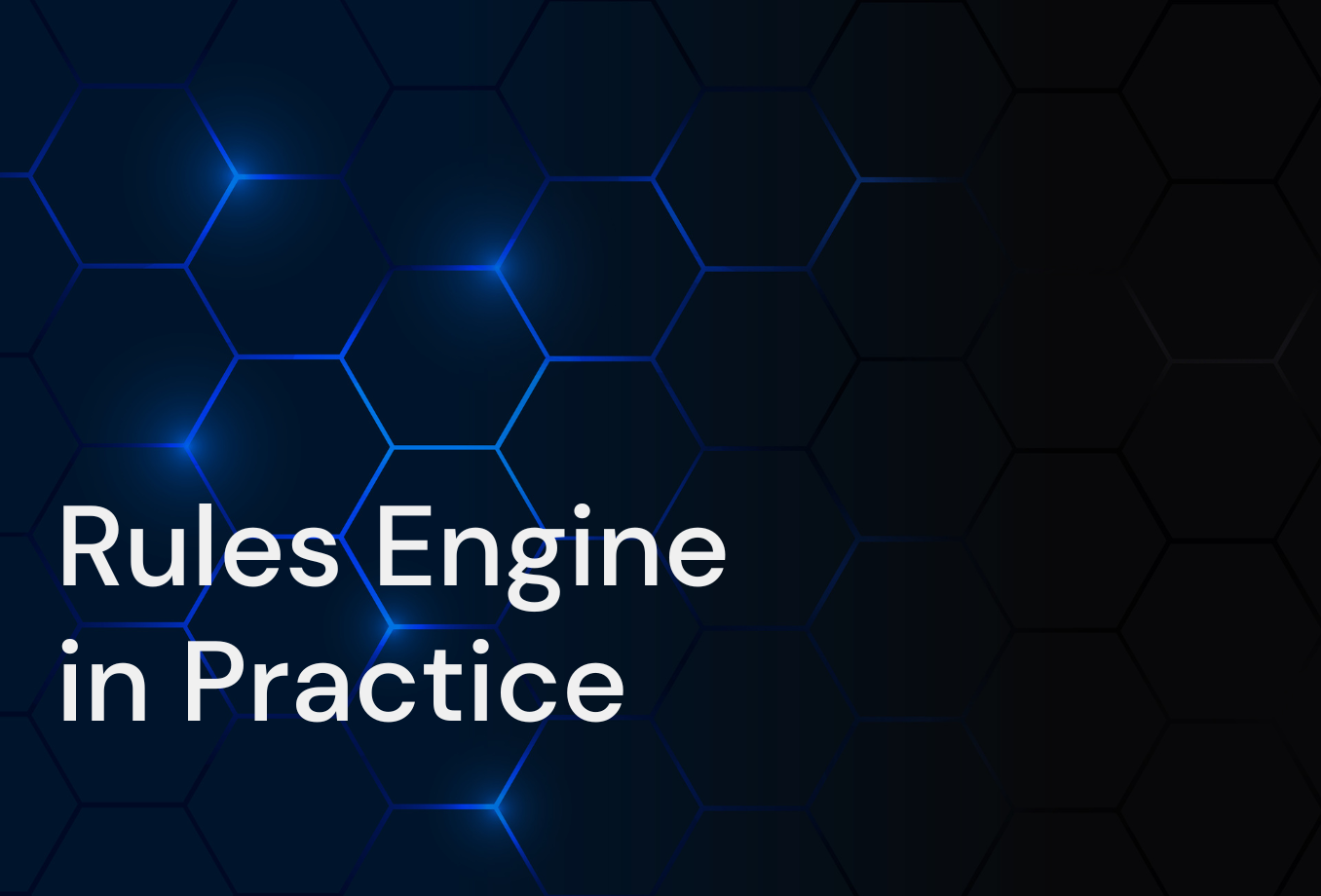Are you tired of outdated pricing models holding your insurance company back? Imagine transforming your business operations with a powerful business rules engine (BRE).
This game-changing technology revolutionizes the insurance industry by automating policy pricing and streamlining decision-making processes.
By implementing business rules through a BRE, you'll slash operational costs, boost accuracy, and deliver personalized rates instantly. Managing business rules becomes effortless, allowing you to adapt swiftly to market changes and regulatory updates. Don't let your competitors outpace you.
Embrace the future of insurance pricing and watch your efficiency soar. It's time to unleash the power of a business rule engine and propel your company to new heights.
- Business rules engines (BREs) automate insurance pricing, enabling dynamic and personalized rates without human intervention.
- BREs streamline business processes by executing complex business rules instantly, reducing repetitive tasks and improving operational efficiency.
- Implementing a business rules engine allows insurers to adapt quickly to market changes, regulatory updates, and evolving risk factors.
- BRE-driven pricing enhances accuracy, ensures regulatory compliance, and provides a competitive edge in the insurance market.
- The integration of AI and predictive analytics with business rule engines represents the future of insurance pricing, offering even more sophisticated and adaptive pricing models.
Dynamic Pricing Needed in Insurance Industry
Insurance markets require speed. Business rules engines deliver speed. They automate pricing and business processes. Business rules execute without human intervention, changing insurance forever.
Changing Risk Landscapes
In 2023, there were 45 catastrophic events globally that caused damages of at least $1 billion each, setting a new record for the insurance industry.
Allianz Risk Barometer indicates that many leaders are aware that traditional underwriting methods may not suffice in addressing modern risks, such as those posed by climate change and cyber threats.
Risks change fast. Traditional pricing models are behind the curve. Business rules engines are instant. They can take in new data and execute business rules in real-time.
That means accurate risk assessment and fair pricing. Get a business rules engine, and you’ll automate your pricing based on current risk. Your premiums will be based on actual risk, not old data.
Customer Expectations for Personalized Pricing
Customers want tailored pricing. 71% of consumers expect companies to deliver personalized interactions, and 76% express frustration when this does not happen.
83% of consumers are receptive to personalized offers, with one-third considering these offers crucial to their shopping experiences. Personalization strategies can lead to a 15% average increase in revenue.
Business rules engine software makes this possible. It considers multiple factors at once. Driving habits, property features and lifestyle choices are applied automatically configure your rules engine to execute business rules for each customer. It will give them a quote in seconds. This will delight customers and optimize your pricing.
Competitive Pressure in the Insurance Market
Insurance markets are competitive. Business rules engines give insurers an advantage. They automate pricing based on market conditions. That means you can respond quickly to competitor moves.
Get a BRE to manage your pricing dynamically. You’ll stay competitive without sacrificing profitability. The rules engine will balance competitiveness and profitability for you.
Regulatory Compliance Costs
In the insurance industry, regulatory changes are frequent and significant. In the first half of 2023 alone, there were over 1,700 changes in state insurance regulations, representing an 8% increase compared to the same period in 2022.
Regulatory compliance in the insurance industry is complex and costly. Manual compliance processes are time-consuming and error-prone. They require significant resources to maintain.
A business rules engine (BRE) automates compliance checks. It ensures all pricing decisions adhere to current regulations. This automation reduces compliance costs significantly. It minimizes the risk of regulatory fines and penalties.
Implement a BRE to streamline your compliance processes. It will execute business rules that incorporate regulatory requirements automatically. This approach ensures consistent compliance across all policies and pricing decisions. It also allows for quick updates when regulations change, reducing the ongoing cost of regulatory maintenance.
How Business Rules Engines (BREs) Automate Policy Pricing
Business rules engines change insurance pricing. They automate complex decisions. That means dynamic pricing at scale and business process automation.
Automated Decision-Making
BREs use pre-defined rules to make pricing decisions. These rules are your underwriting guidelines and risk assessment criteria. The business rules engine applies these rules to each policy.
Here’s how:
- Define rules in the BRE.
- Input customer data.
- The rules engine runs all the rules.
- It gives you a price in seconds.
This removes manual calculations and human error. It ensures consistent application of pricing rules across all policies and business processes. It's crucial for compliance matters like GDRP (General Data Protection Regulation) or Health Insurance Portability and Accountability Act (HIPAA).
Dynamic Pricing
Business rules engines can adjust prices in real-time. They can consider multiple factors at once. These are current risk assessments, market conditions and competitor pricing. Update these in your BRE and the rules engine will adjust prices as conditions change. That means you can manage your business rules and stay competitive.
External Data Sources
Business rules engines can connect to multiple external data sources. This increases pricing accuracy and personalization. It also automates data collection so you don’t have to. Connect your BRE to:
- GPS data for auto insurance
- Weather forecasting systems for property insurance
- Credit scoring agencies for risk assessment
The rules engine will apply this data to pricing. That means more accuracy and less manual data entry.
BRE Pricing for Insurers
Using business rules engines in insurance pricing has many benefits. These benefits are for operations and customer satisfaction.
Time and Cost Savings
BREs save time and resources for pricing decisions. They automate the mundane tasks like basic underwriting and rate changes. That means business process automation and cost reduction.
Calculate the time saved by underwriters after a business rules engine.
Many insurers report 30-50% reduction in underwriting costs. The rules engine runs complex business rules faster and more accurately than manual processes.
Accuracy and Regulatory Compliance
Business rules engines increase pricing accuracy. They apply complex rules to all policies. That means fair pricing and regulatory compliance. Program your BRE with current regulatory requirements.
The rules engine will apply those rules to all pricing decisions. When regulations change update the rules in your BRE and the system will apply those changes to all policies.
Personalized Customer Experience and Pricing
Business rules engines can do highly personalized pricing. Configure your BRE to consider individual customer characteristics. The rules engine will apply business rules to each policy based on those factors.
That means each customer gets a fair price based on their risk profile. That will enhance customer satisfaction and can lead to higher retention rates.
Ready to revolutionize your insurance pricing strategy?
Consider Higson, a powerful business rules engine designed specifically for the insurance industry. Higson offers seamless integration, user-friendly interfaces, and robust capabilities for managing business rules. It empowers your team to implement dynamic pricing, ensure regulatory compliance, and streamline business operations effortlessly. Experience the transformative power of a cutting-edge BRE without the hefty price tag or complex implementation process

Take Full Control of Your Product Logic
We provide fee Proof Of Concept, so you can see how Higson can work with your individual business logic.





.png)
